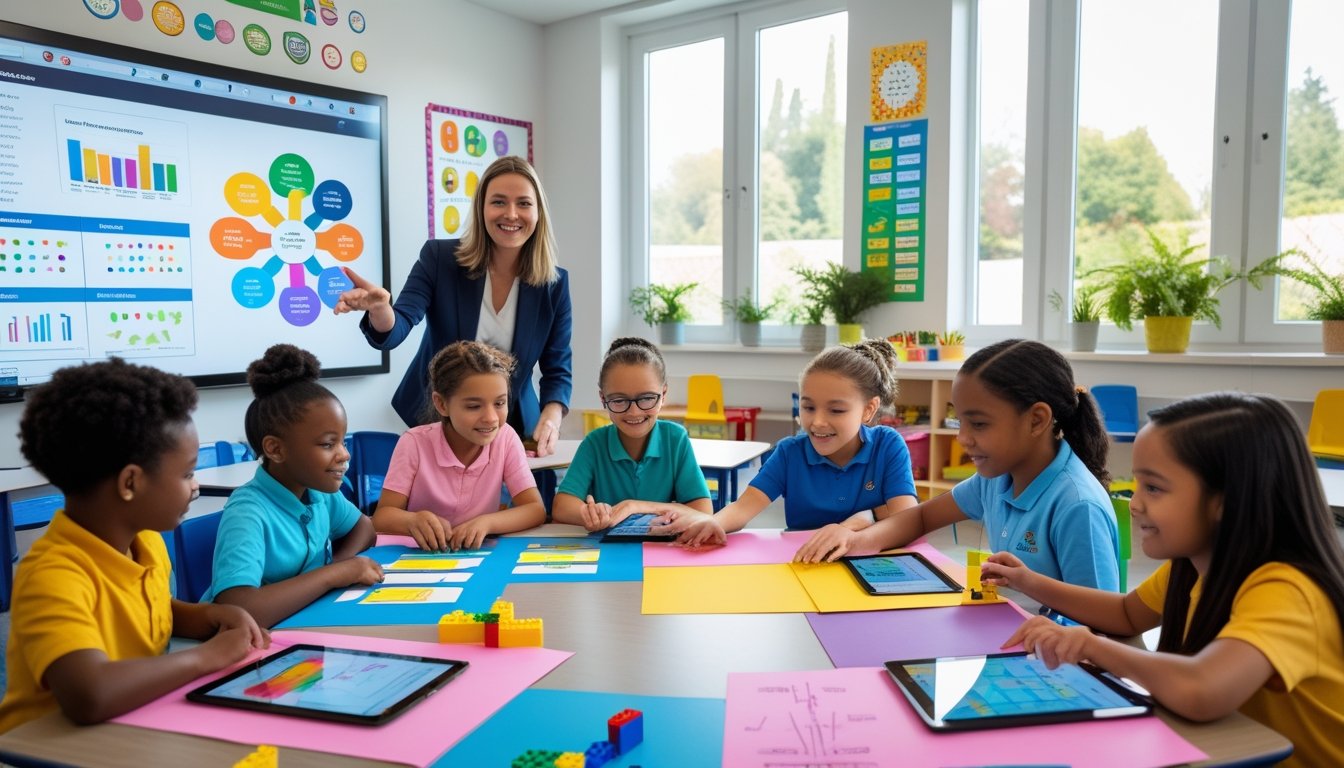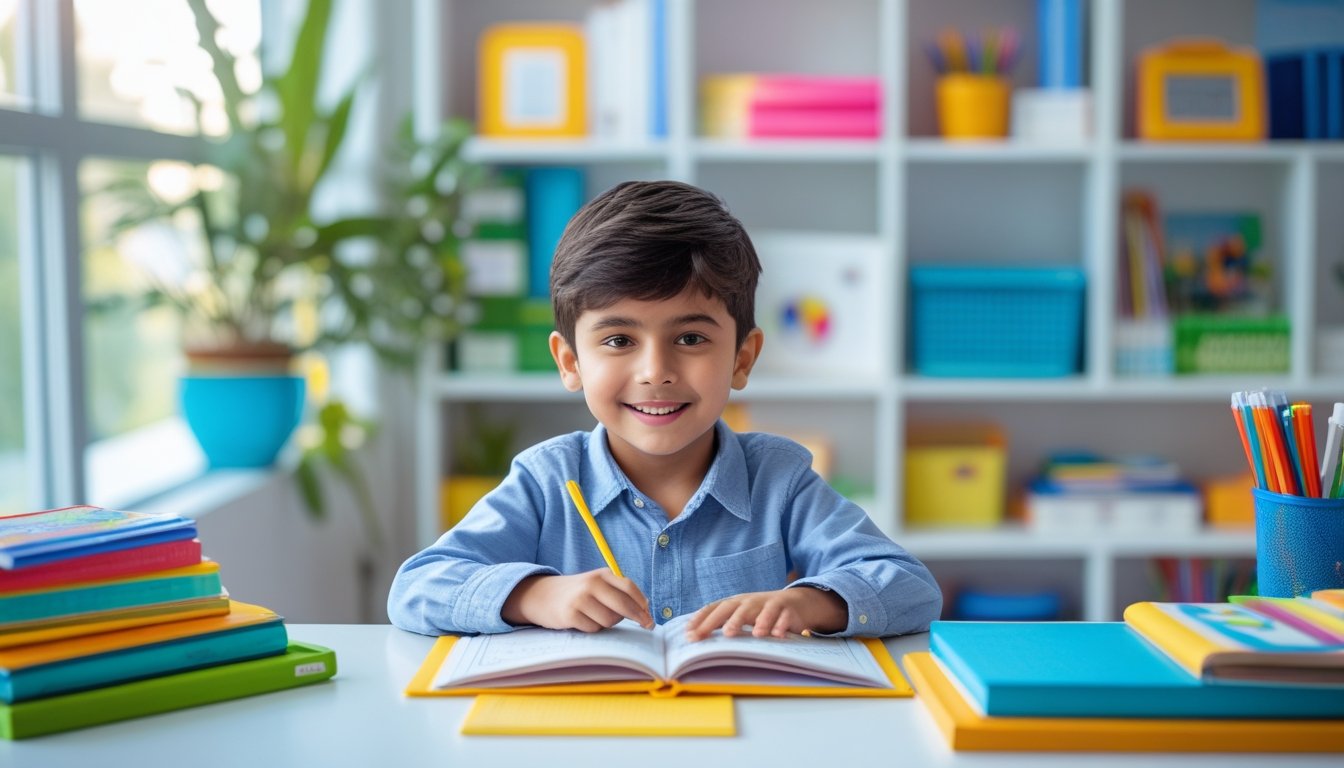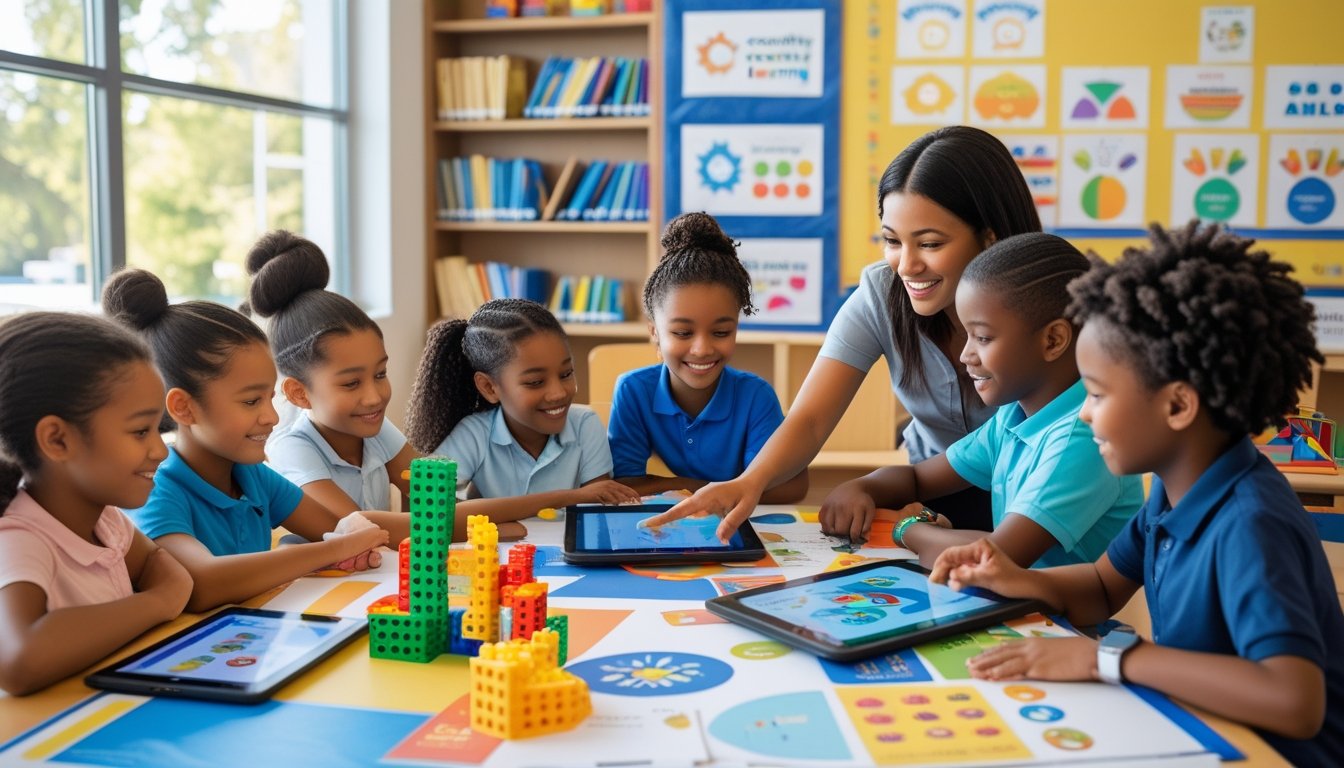Late updated: 11 Oct 2025 13:10
Written by:
Exploring Innovative Study Techniques for Children: Boosting Learning and Creativity
Innovative study techniques are transforming the way our children learn, making the process more engaging and enjoyable. As parents and educators, we must explore these methods to ensure we provide the best possible support. By using varied and dynamic strategies, we can enhance children's focus, retention, and overall academic success.

We often notice that traditional study methods may not suit every child. In response to this, new approaches are being developed to cater to different learning styles and needs. Introducing these techniques can turn studying from a mundane task into an exciting adventure, fostering curiosity and a love for learning.
One essential aspect is creating a positive learning environment that motivates our children. By optimising both the study routines and the spaces they learn in, we can help them reach their full potential. Tailoring these elements to individual preferences ensures a more effective and enjoyable learning experience.
Key Takeaways
- Diverse study techniques boost children's academic success.
- Tailored strategies improve focus and retention.
- Positive environments enhance motivation and performance.
Innovative Study Techniques for Children
In exploring techniques for enhancing children's learning, active learning, gamification, mind mapping, and memory strategies can all play vital roles. These methods are not just about memorising facts but about engaging in ways that make learning captivating and effective.
Active Learning Methods
Active learning involves students participating in activities, rather than passively receiving information. Techniques such as group discussions, debates, and teaching peers are included. These methods encourage critical thinking and improve retention.
We find that by involving children directly, they gain a deeper understanding of material. Additionally, active learning fosters a sense of accomplishment, motivating them to engage more with the subject matter.
Gamification and Educational Games
Introducing elements of gamification, such as rewards and challenges, can significantly boost engagement. Educational games are an effective tool for this. They incorporate game-like elements such as points, badges, and leaderboards, turning learning into an interactive experience.
These games bolster both motivation and memory recall. Game-based learning can cover subjects like maths, science, and language, providing instant feedback and adapting to the learner's pace.
Mind Mapping and Visual Tools
Mind maps are a powerful visual tool for organising information. They help children visualise connections between ideas, making complicated topics more accessible. Through mind mapping, learners can break down large amounts of information into digestible parts.
The visual nature of mind maps facilitates better memory retention and understanding. To create a mind map, children start with a central concept and branch out with connected ideas, encouraging a more engaging learning process.
Memory-Boosting Strategies
Effective memory strategies can greatly enhance learning efficiency. Techniques such as mnemonic devices are pivotal in improving recall. Simple phrases or abbreviations aid in remembering complex information. Repetition and flashcards are also crucial tools.
Utilising technology like Quizlet, where students can practice with online flashcards, further increases memory success. By empowering children with these strategies, we support them in developing lifelong effective study skills.
Optimising Study Routines and Environments

To enhance children’s academic performance and engagement, structuring study routines and creating supportive learning environments is essential. By focusing on these key areas, we can foster effective study habits that cater to diverse learning styles and preferences.
Structured Study Sessions
Implementing structured study sessions helps cultivate focus and discipline. One recommended approach is the Pomodoro Technique, where students work for a set period, typically 25 minutes, followed by a short break. This method maintains concentration and prevents burnout. Establishing a regular schedule tailored to a child's learning style and stamina is crucial.
Encouraging students to use tools like checklists and timers can also enhance productivity and time management. Creating a distraction-free environment with minimal noise and clutter aids long-term memory retention and maximises learning potential. We must consistently evaluate and adjust these sessions to suit individual needs and address any academic challenges.
Parental Involvement and Support
Active parental involvement can significantly impact a child's academic success. Parents should engage with their children's study routines, helping establish effective habits. This can begin with setting realistic goals and offering praise for achievements. Providing resources such as educational videos from platforms like Khan Academy can further enrich the learning experience.
We play an integral role in minimising distractions during study sessions. For example, ensuring a quiet, dedicated space boosts concentration. Additionally, facilitating open communication about academic challenges and emotional well-being creates a supportive atmosphere. When we address obstacles collaboratively, children feel more empowered and motivated to overcome them.
Peer Tutoring and Collaborative Groups
Peer tutoring and collaborative study groups provide opportunities for shared learning experiences. These interactions encourage children to articulate their understanding and foster critical thinking skills. By participating in peer-led discussions, students gain different perspectives and solidify their knowledge through teaching, which is more interactive than traditional methods.
Forming study groups with classmates or friends allows children to tackle complex topics together, easing academic pressure. Utilising resources like study guides, practice worksheets, and educational games can transform group sessions into dynamic, engaging practices. Integrating these collaborative efforts into regular study routines can make learning more enjoyable and effective for all students involved.
Frequently Asked Questions

Innovative study techniques for children focus on active learning, technology integration, and creative engagement. Our goal is to enhance focus, retention, and critical thinking through these methods.
What are the proven benefits of active learning strategies for young students?
Active learning encourages participation and engagement by involving students directly in the learning process. Through techniques such as group discussions and hands-on activities, young learners can better understand and retain information, which supports improved academic outcomes.
How can technology be effectively integrated into study routines for children?
Technology can play a crucial role in study routines by providing interactive tools and resources that cater to different learning styles. Educational apps and online platforms can offer personalised learning experiences and support skill development.
What role does gamification play in enhancing learning outcomes for pupils?
Gamification introduces game-like elements into educational settings, making learning more engaging and motivating for students. By using rewards and challenges, teachers can inspire pupils to reach academic goals while enjoying the process, which fosters a positive attitude towards learning.
Which study methods encourage critical thinking and problem-solving skills in primary education?
Study techniques such as questioning methods, problem-based learning, and research projects can develop critical thinking and problem-solving skills. These approaches encourage students to analyse information, ask questions, and explore solutions, preparing them for complex tasks.
How can parents support the development of independent study habits in their children?
Parents can support independent study habits by creating a structured environment and developing a consistent routine. Encouraging goal-setting, providing access to resources, and being supportive can help children become self-directed learners.
What are some creative approaches to collaborative learning in classroom settings?
Collaborative learning can be enhanced through group projects, peer-teaching sessions, and collaborative digital tools. These approaches allow students to share knowledge, improve communication skills, and help each other solve problems, leading to a deeper understanding of the subject matter.
